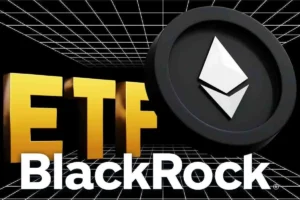The Case Against Fiat Money: Robert Kiyosaki’s Advocacy for Decentralized Assets
Robert Kiyosaki, the best-selling author of Rich Dad Poor Dad, has voiced strong criticism against fiat currencies, branding them “fake money.” His arguments, underscored by insights from former Congressman Ron Paul, focus on the perils of central bank control over monetary policy. Kiyosaki’s advocacy for decentralized assets such as Bitcoin, gold, and silver emphasizes a growing urgency for individuals to protect their wealth from inflation and governmental overreach. By aligning himself with prominent libertarian voices, Kiyosaki raises essential questions about the integrity of financial systems shaped by central banking practices.
The Dangers of Central Banking
In a recent social media post, Kiyosaki tackled the alarming trend of central banks manipulating currency through interest rate fixation. This practice, he argues, is a manifestation of Marxist central planning, aimed primarily at wealth confiscation and the erosion of individual liberties. By controlling money supply and interest rates, central banks impose stringent limitations on economic freedom, restricting individuals’ ability to build and sustain wealth. Kiyosaki’s perspective highlights the urgency of adopting alternatives that empower individuals rather than constrict them under a centralized monetary regime.
Advocating for Hard Assets
Furthering his argument, Kiyosaki stated that fiat money engenders dishonest practices across various sectors, leading to “fake accounting, fake statistics, and fake leadership.” He passionately urges his followers to move away from complacency associated with saving in fiat currencies. Instead, he promotes a strategy of investing in physical assets—gold, silver, and Bitcoin—which he considers “real money.” Kiyosaki’s advocacy isn’t merely theoretical; it’s a call to action for his audience to secure their financial future by transitioning to decentralized assets that operate independently of central banks’ fluctuating policies.
The Impact of Cryptocurrency
Bitcoin, in particular, holds a special place in Kiyosaki’s vision as “people’s money.” He perceives it as a safeguard against both inflation and potential government overreach. With increasing concerns surrounding economic stability—exacerbated by geopolitical tensions such as the ongoing U.S.-China trade war—Kiyosaki believes that decentralized finance offers a solution to these uncertainties. Moreover, the growing traction of Bitcoin among financial skeptics underscores a significant shift in how people perceive the role of money in society.
Alarmist or Alarmed? The Growing Support for Bitcoin
While some critics label Kiyosaki’s rhetoric as alarmist, it mirrors a deepening concern among many regarding the financial landscape. Predictions surrounding Bitcoin’s future price have become increasingly bullish, with figures like Kiyosaki forecasting it may reach a staggering $1 million. As traditional financial systems face mounting pressure from economic instability, the speculative nature of cryptocurrencies presents both risks and opportunities for investors. Kiyosaki emphasizes the need for proactive measures in combating what he perceives as encroachments on individual freedoms through compromised financial systems.
Regulatory Changes and the Future of Decentralized Finance
Interestingly, Kiyosaki’s advocacy seems to be making headway, even influencing regulatory bodies. The Federal Reserve’s recent decision to ease strict regulations on crypto banking could pave the way for broader acceptance of digital currencies. This regulatory shift signifies a growing acknowledgment of the legitimacy and necessity of decentralized finance. As more individuals consider alternative financial avenues, Kiyosaki’s message serves as a pertinent reminder of the importance of financial literacy and the value of securing one’s wealth against the tides of central bank influence.
Conclusion: A New Financial Paradigm
In summary, Robert Kiyosaki’s criticism of fiat currencies and advocacy for decentralized assets like Bitcoin exemplifies a transformative shift in the financial narrative. By challenging traditional banking practices and promoting hard assets, he empowers individuals to take control of their financial destinies. As economic uncertainties loom large, adopting Kiyosaki’s perspective could offer a pathway toward financial freedom, further solidifying the case for a new monetary paradigm rooted in personal sovereignty and sound money principles. Embracing these changes may not just be beneficial, but necessary for anyone serious about protecting their wealth in the future.
















